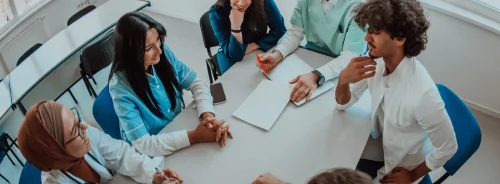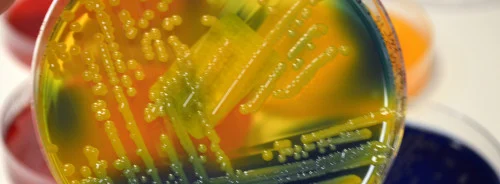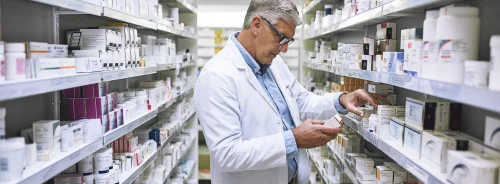Is there a time after COVID-19?
Do you regularly hear the question of what we will do after COVID-19? Or what should we do? This is a strange question, because there will be no time after Coronavirus. Corona is an endemic virus, that is among us and does not go away. There is also no time after Influenza. Endemic viruses are here. We need to take the measures to ensure that we can live with it well and now is the time because it will not get much better. COVID-19 is a serious and aggressive virus. I'm not going to join the discussion that it is kind of a flu. Not even a strong flu. It is a serious virus, which we will only get under control with vaccines.
The Future
In the western world, we have ample access to vaccines. However, we must also vaccinate the African people. COVID-19 does not have a passport, it does not stop at the borders (even the Australians are experiencing this) and we may be able to ban travel to Kenya and Nigeria for a few more years, but at some point that will end and we will be presented with the bill of our own interest. While we should do it for reasons of humanity, if we simply follow our own interest, we need to vaccinate Africa as soon as possible.
"...because there will be no time after Coronavirus. Corona is an endemic virus, that is among us and does not go away. There is also no time after Influenza. Endemic viruses are here. We need to take the measures to ensure that we can live with it well..."
Currently, we are still puzzling about how we can do it and how to make money from it. That is how the Medical Industrial Complex works. This complex sows itself in different guises and at different times. It shows with the persistent continuation of tests in a population that is sufficiently vaccinated, or at events of young people who do not get sick or hardly get sick and are also unable (asymptomatically) to continue the pandemic (see Anthony Fauci on YouTube: 'Asymptomatic carriers are never the driver of a epidemic'). Testing is required to ensure that production continues. Rest assured, I have been for a long time convinced that this has nothing to do with bad intention or bad people. It is just how we work.
The Battlefield
The damage of COVID-19 is mainly due to the collateral damage of the measures. We have known this since May 2020 (and could have known this even earlier). For those who do not believe it: read the studies, including those of Gupta Strategists: 'COVID goes Cuckoo', May 20, 2020. I quote the conclusion (PK: translated from Dutch):
Hospital care for COVID patients has saved an estimated of 13 thousand to 21 thousand healthy years of life (QALY's) in the Netherlands. ... That number of healthy years of life won is little in relation to what it has cost: an estimation of 100 thousand to 400 thousand healthy years of life have been lost by cancelling and postponing regular care, such as care for people with cancer, heart failure, diabetes or intestinal diseases. Financial pressures are also disproportionately high: the cost of COVID care per healthy year of life won is 100 thousand to 250 thousand euros. That is up to a factor of three higher than what is generally accepted.
It saddens me, a cancer patient and concerned about the fate of my fellow cancer patients, who have not had a diagnosis or a late diagnosis and are going to die. I'm not going to talk about the patients with cardiovascular disease, diabetes, orthopaedic complaints and so on. That is not my field of expertise. The damage that has been done is a multiple of the damage caused by the virus COVID-19 itself. Policymakers, government, members of parliament, Outbreak Management Teams and Public Health Organizations hopefully have a small mirror.
What To Do?
There are 3 key things are important as we move forward: take measures to arrange the evasion of patients and do not scale down the care when the next crisis appears (whether this is Coronavirus or another virus).
1. Prevent COVID-19 from making you seriously ill.
We know what we need to do to arm ourselves against Coronavirus and many other viruses: take care of a strong immune system. That's what you get from living a healthy life. Exercise, healthy food, no smoking, little or no alcohol, no obesity. It has been known for decades and nevertheless we are still weakening our immune system. Facilitated by the government, we hardly smoke less, eat unhealthy, exercise less, gain weight and drink more alcohol. Information campaigns do not help enough. Enforcement and patronising citizens does. Do not ban smoking; but ban the sale of tobacco, sport for 5 hours a week in primary and secondary schools, no sugars in drinks, no advertising of alcohol, et cetera. Government: you have a responsibility and a job to do to keep us healthy!
2. Take Care of Evacuation Centres for Care.
Every critical system (healthcare is a system) has a swerve. In the Netherlands, government, (i.e. parliament) has made care so efficient that problems arise with the slightest deviation. The evidence for this has been provided in March 2020. Care could not handle a sudden increase of ICU beds. We have been warned (in the same Gupta report of 20 May 2020) and we have not listened. In September 2020, the same disaster took place. Will we fail for the third time in a row and will it go wrong again? In Amsterdam, the Slotervaart Hospital is empty. Turn it into a hospital that can be used for emergencies. Other locations are also available. Every country has such places. Planning in advance helps everyone.
3. Don't scale down.
Scaling down is another word for discriminating patients. 'You, cancer patient, are less important to us than you, COVID-19 patient'. Society can live with 40,000 cancer deaths in the Netherlands of which 20.000 are preventable, but we cannot live with 10,000 Corona deaths. The OLVG hospital in Amsterdam has shown that you can organise a hospital in such a way that scaling down can be kept to a minimum.This initiative has hardly been followed up, despite the CEO of the OLVG advising his colleagues. We only know one way to catch a peak in healthcare and that is scaling down. That is how we do it in healthcare and if other patients are affected, it is just collateral damage. This is not good!
In short; there is no post-Coronavirus, but it is possible to live with it quite well. We have to live healthy, create swerves and adapt the organisation of healthcare. It starts with a decision. The rest is execution and a lot of work.
Peter Kapitein,
Patient Advocate
Inspire2Live






